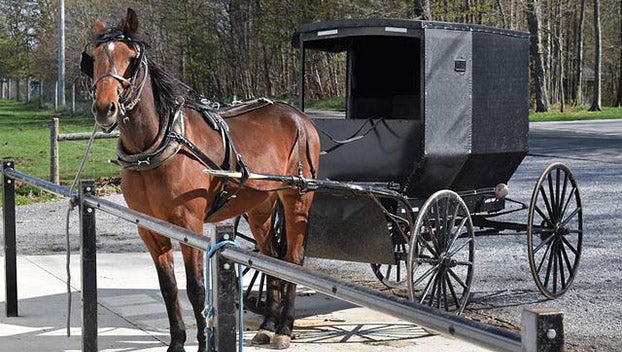State regulates application of biosolids
Published 1:05 pm Tuesday, August 8, 2017
The Virginia Department of Environment Quality (DEQ) is in charge of regulating the use of biosolids — a substance farmers use as fertilizer, consisting of a mixture of treated human and industrial waste and is used on farms to condition soil — in localities across the state.
There is currently no public information regarding an upcoming biosolid permit for Prince Edward County, according to DEQ spokesman Bill Hayden.
“It may not be at the public notice stage, so I don’t have (any information regarding an upcoming permit),” Hayden said. “But once we get that information, it will show specifically which farms have applied, where they are, what the acreage is that would be affected, all that kind of detail.”
According to Hayden, biosolids are waste from sewage treatment plants that have been treated to eliminate virtually all of the germs that may be in it.
“Once it is treated, it’s sort of in a solid form and it’s used as fertilizer on farm fields,” Hayden said. “The use of biosolids does not affect groundwater.”
Prince Edward County Administrator Wade Bartlett said the county is not involved with the application of biosolids.
Biosolids have “changed to where it’s called Class A (by DEQ) where it’s not listed as hazardous because it’s being processed now (and) it’s being heated and it becomes basically what you can buy at Lowe’s in a bag,” Bartlett said. “Now, it is applied to some land in the county but that is all through the state.”
Bartlett said the class was changed by DEQ from another that required it not be close to wells and other structures. He said being listed as Class A means it’s not regulated.
“I have not received any complaints in Farmville or Prince Edward County about the use of biosolids,” said state Sen. Mark Peake, R-Lynchburg, who represents the 22nd Senate District.
When asked about what biosolids are made up of, Peake deferred the question to Hayden.
“There are some low levels of metals or other types of chemicals that, because of the treatment process, are considered at very low and safe levels,” Hayden said.
He said testing is not done on each field where biosolids are applied, but noted biosolids are tested prior to leaving sewage treatment plants.
“The information, it’s pretty good … everything looks OK,” Hayden said.
He said as far as chemicals in biosolids, the low level of metals were all he could think of that were a part of the industrial waste.
Hayden said the way the permits for biosolid use are written, only a designated amount of biosolids can be used.
“You’re not allowed to use more than you need,” Hayden said. “If there are a lot of conditions on the permit that say you can’t do it during the rain so it doesn’t wash away, you have to do it in a certain distance of wells or home or other things like that.”
He said information that Environmental Protection Agency and DEQ have shows that if used properly there are no health or environmental issues associated with biosolids.





